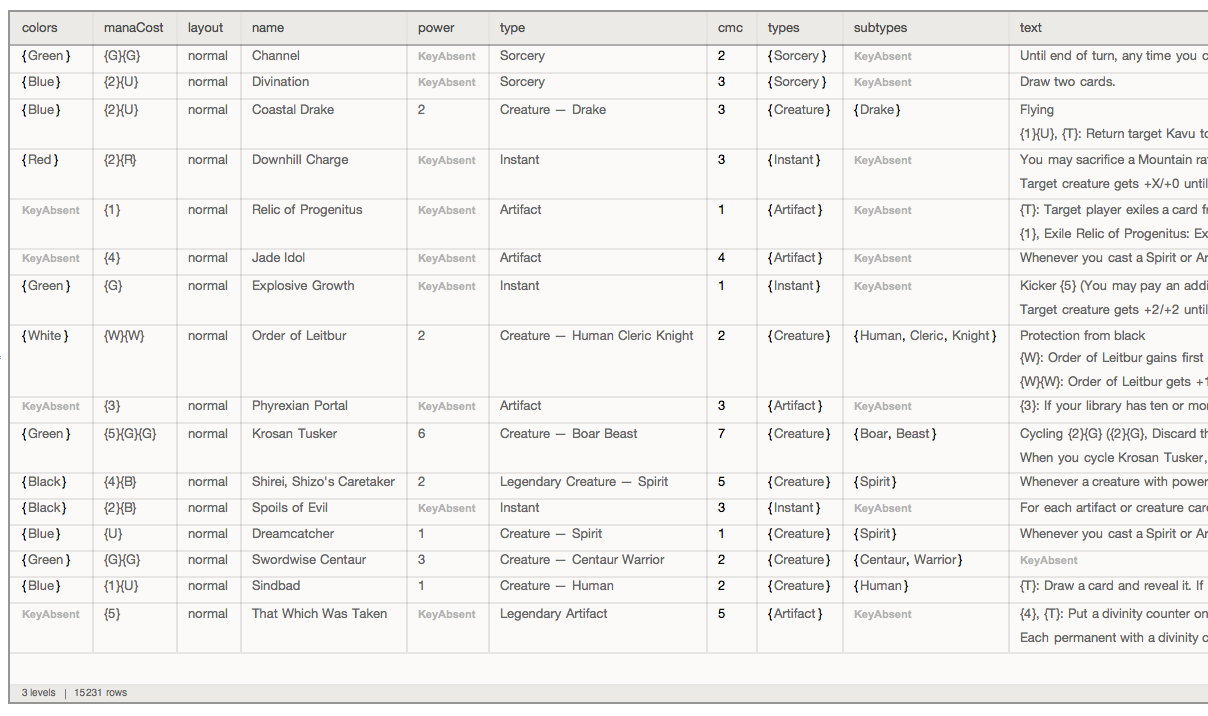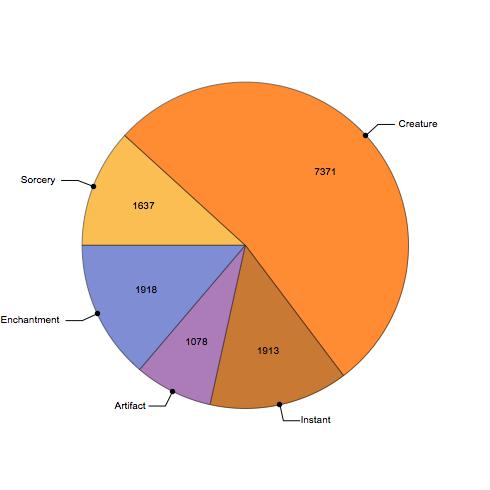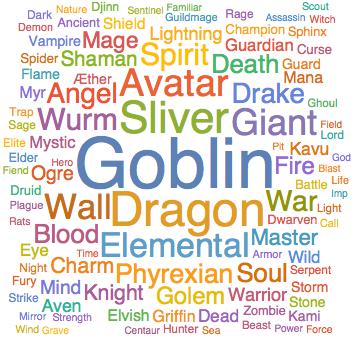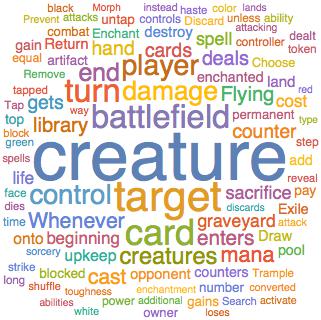Adam, that's an interesting idea. Have you made any progress?
I was an avid MtG player when in my teens, so I've decided to take a look at this API.
Here is how I converted the whole set of cards into a Dataset:
allCards = Dataset[Association /@ Import["http://mtgjson.com/json/AllCards.json"][[All, 2]]]

And here is how I obtained some insights about the types of cards, their names, and their text:
counts = Take[Counts[Part[allCards, All, "types"]], 5];
PieChart[counts, LabelingFunction -> "RadialCenter", ChartLabels -> Placed[Flatten[Normal[Keys[counts]]], "RadialCallout"]]

WordCloud[ DeleteStopwords@ StringJoin[Riffle[Normal[Part[allCards, All, "name"]], " "]]]

WordCloud[ DeleteStopwords@ StringJoin[ Riffle[DeleteMissing[Normal[Part[allCards, All, "text"]]], " "]]]
